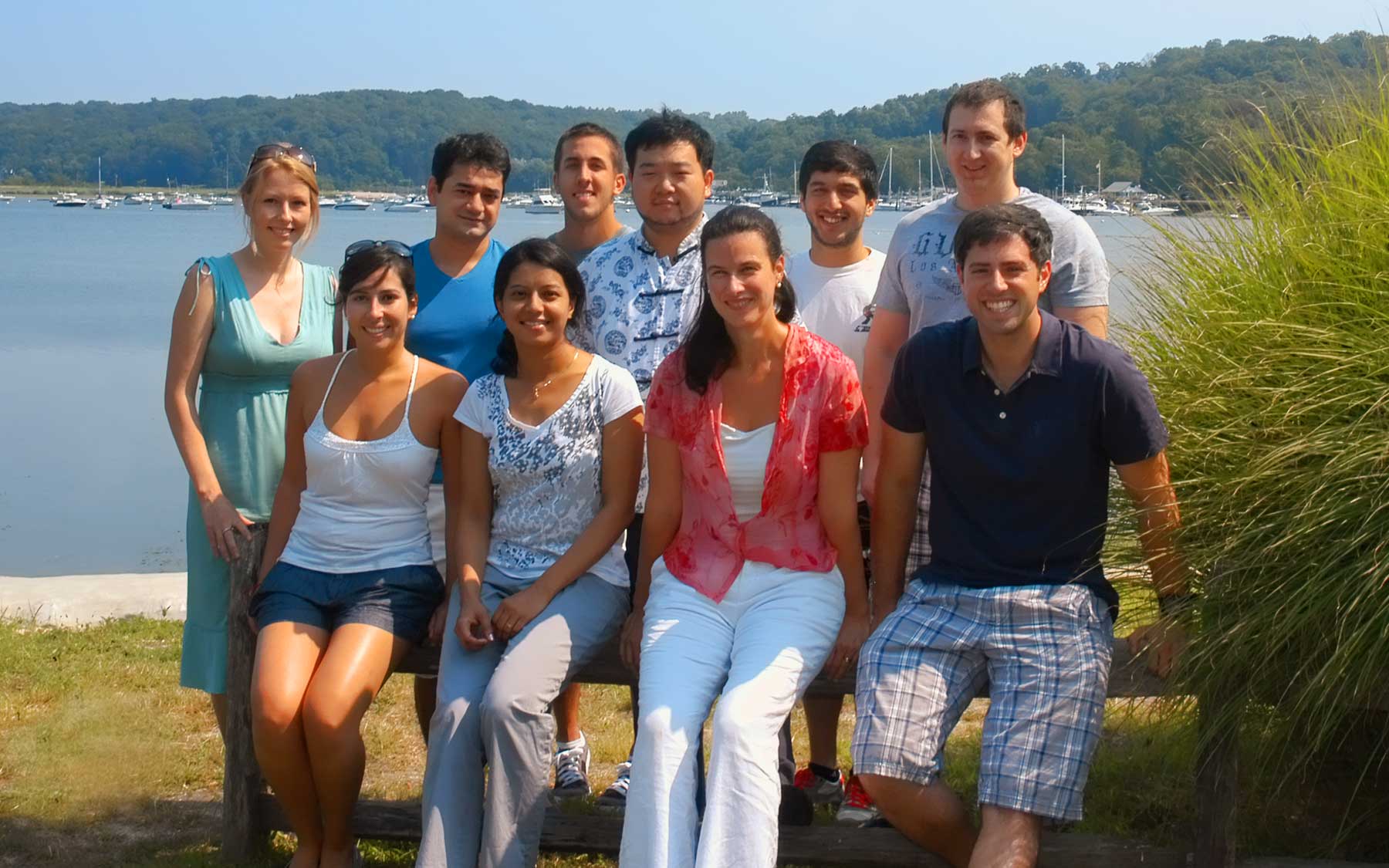Since 2009, the laboratory of CSHL Assistant Professor Raffaella Sordella has been one of the beneficiaries of the funds raised by SAA. She has put her share to good use—to find therapies that will improve the treatment outcomes of patients with lung cancer. On a gorgeous Saturday morning in mid-August, Dr. Sordella took a break from lab work, donned her swim cap and goggles, and dived into Long Island Sound along with 200 other swimmers to complete a 1-mile swim. She wanted to do her part in helping raise the funds that she and her colleagues benefit from.
“The support that my lab has received from SAA has been critical in helping us pursue novel ideas and make important discoveries about how non-small cell lung cancer becomes resistant to current therapies,” Dr. Sordella commented after her swim. “I thought joining the community of supporters in their efforts would be a nice way of thanking them for their drive and commitment.”
The mortality rate of lung cancer, which is the leading cause of cancer deaths in both men and women worldwide, exceeds that of breast, prostate, colon, kidney, liver and melanoma combined. A major thrust of Dr. Sordella’s research is on non-small cell lung cancer (NSCLC), which accounts for about 85% of all lung cancers.
The ability to effectively treat NSCLC patients who bear a certain cancer-causing mutation in the epidermal growth-factor receptor (EGFR), a protein that sits on the surface of cells, with drugs such as Tarceva®, initially caused much excitement among the research and patient community. But the somber realization that a majority of these patients develop resistance to these drugs within a short period has sent researchers such as Dr. Sordella hurrying back to the lab bench to understand why this happens and find a way to circumvent or overcome this devastating problem.
Last year, her group discovered that inflammation might be one of the factors that could reduce a lung tumor’s sensitivity to Tarceva. Using mouse models of lung cancer, her team showed that non-cancer cells in the inflamed tumor microenvironment increased their secretion of signaling molecules called TGF-beta and IL-6, which in turn increase cancer cell survival.
Their latest work, which is yet to published, sheds light on how these molecules drive metastasis and may explain why lung cancers tend to recur and are often lethal even when treated in early stages. “Drugs that can inhibit IL-6 are currently available, and so, it’s even more urgent for us to understand the efficacy with which these could work with Tarceva and other anti-cancer therapies,” explains Dr. Sordella. The team is currently studying this very question in pre-clinical models.
